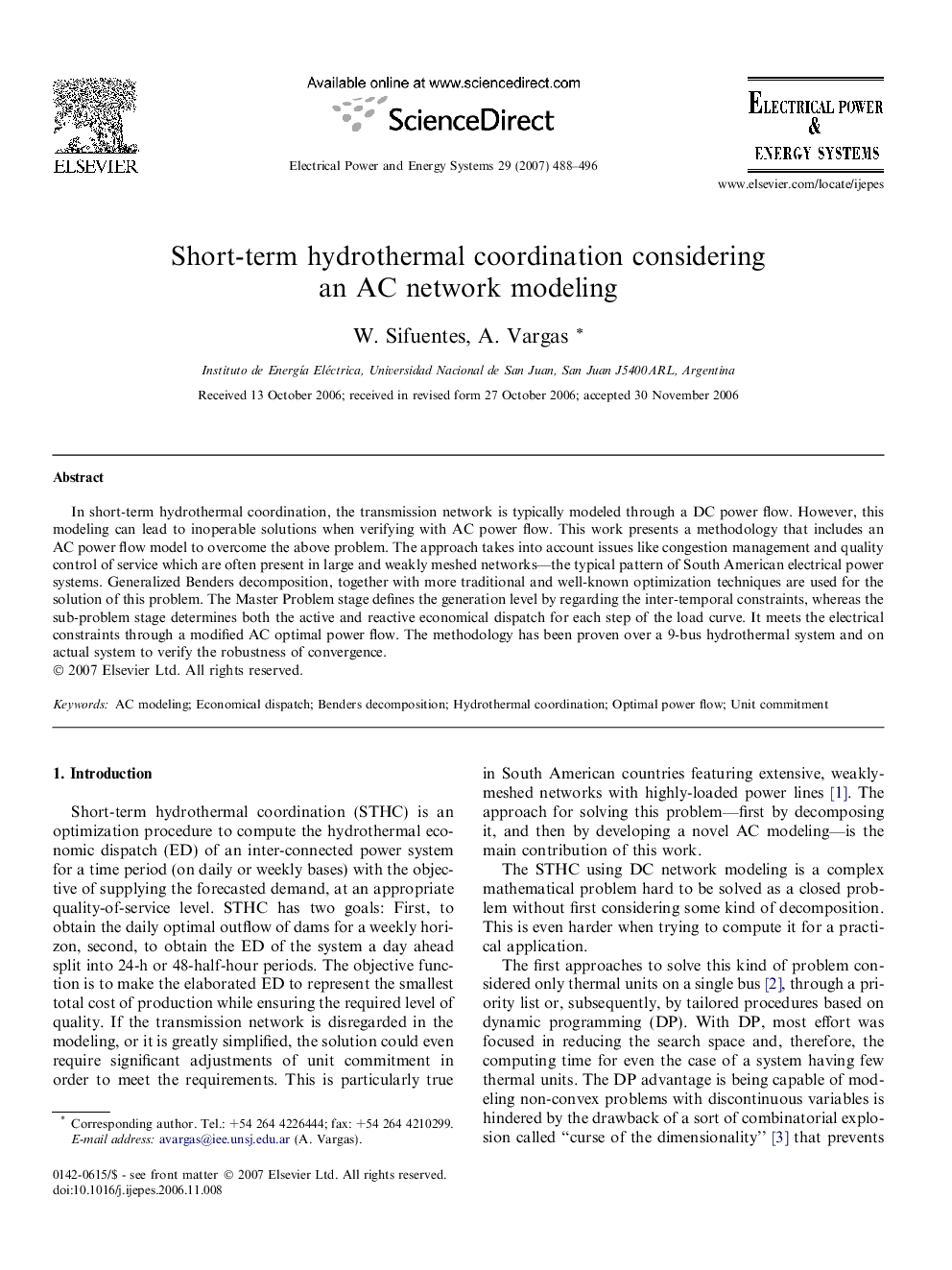| Article ID | Journal | Published Year | Pages | File Type |
|---|---|---|---|---|
| 399064 | International Journal of Electrical Power & Energy Systems | 2007 | 9 Pages |
In short-term hydrothermal coordination, the transmission network is typically modeled through a DC power flow. However, this modeling can lead to inoperable solutions when verifying with AC power flow. This work presents a methodology that includes an AC power flow model to overcome the above problem. The approach takes into account issues like congestion management and quality control of service which are often present in large and weakly meshed networks—the typical pattern of South American electrical power systems. Generalized Benders decomposition, together with more traditional and well-known optimization techniques are used for the solution of this problem. The Master Problem stage defines the generation level by regarding the inter-temporal constraints, whereas the sub-problem stage determines both the active and reactive economical dispatch for each step of the load curve. It meets the electrical constraints through a modified AC optimal power flow. The methodology has been proven over a 9-bus hydrothermal system and on actual system to verify the robustness of convergence.
